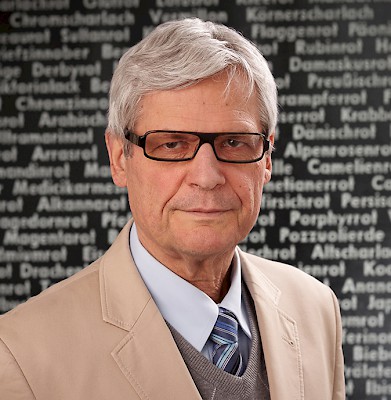Paul Michael Lützeler ist Rosa May Distinguished University Professor in the Humanities an der Washington University in St. Louis. Er lehrt dort deutsche und europäische Literatur und Kultur und leitet das von ihm gegründete Max Kade Center for Contemporary German Literature, zu dessen Aktivitäten die Herausgabe des germanistischen Jahrbuchs »Gegenwartsliteratur« zählt. Er hat Bücher über Hermann Broch, den literarischen Europa-Diskurs, zum Thema Literatur und Geschichte in der Klassik und Romantik sowie zur zeitkritischen Gegenwartsliteratur veröffentlicht. Als Herausgeber hat er das Werk Hermann Brochs ediert sowie zahlreiche Tagungsbände und Anthologien in seinen Forschungsgebieten publiziert. Als Kritiker schreibt er für Kulturzeitschriften und Zeitungen. An Auszeichnungen hat er u.a. den Humboldt-Forschungspreis und die Goethe Medaille erhalten.
Hermann Broch’s autobiographical writing styles in exile
Unlike his friends such as Stefan Zweig and Elias Canetti, Hermann Broch wrote no autobiography in the strict sense. However, there are many texts by this author that exhibit autobiographical characteristics. Firstly one should note the following ego-documents, to which Broch gave preference over an autobiography: the »Tagebuch für Ea von Allesch« (»Diary for Ea von Allesch«), his »Autobiographie als Arbeitsprogramm« (»Autobiography as programme of work«), the »Psychischen Selbstbiographie« (»Psychic Self-biography«), his biographical study »Hofmannsthal und seine Zeit« (»Hoffmansthal and his times«) and, further, an extraordinarily large correspondence. With attention to genre theory concerning autobiography and biography, the diary and epistolography, I will analyse the distinctive character of the inherent presence of autobiographical writing styles in Broch’s self-poetic texts.
Secondly, I will identify the reason for the turn to epistolary work in Broch’s ethics. In his writings on literature he always linked ethical issues with aesthetic ones. The fact that Broch wrote no memoirs in the strict sense and instead favoured the letter as an autobiographical form of expression had to do with his ethical position in exile, which was influenced by Martin Buber’s dialogic thinking (I-Thou philosophy). Kantian ideas on duties also had an ongoing influence, which led him to see the completion of his scholarly and poetic work as more urgent than to work on a review of what had already been achieved.
Thirdly, I will show how Broch reflected upon the ethical and aesthetic aspects addressed here through the example of his still largely unexplored correspondence with Frank Thiess. The reflections presented in this exchange also play a role in the two writers’ dialogue about exile and ›internal exile‹.
